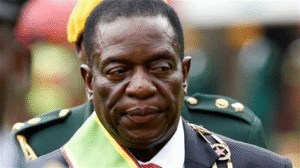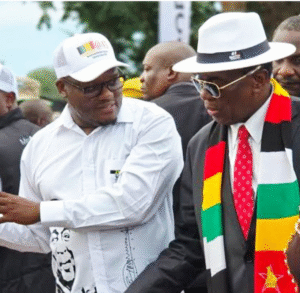ZIMBABWE’S SELECTIVE JUSTICE: THE PERSECUTION OF MP JOANA MAMOMBE

The unfolding saga of Joana Mamombe, a vocal MP for Harare West representing the opposition Citizens Coalition for Change (CCC), lays bare the troubling entwinement of politics and the judiciary in Zimbabwe. Charged with organizing an anti-government protest during the stringent Covid-19 lockdown in May 2020, Mamombe’s ordeal starkly contrasts with the acquittal of her co-defendants, Cecilia Chimbiri and Netsai Marova, who faced identical charges.
Mamombe, alongside Chimbiri and Marova, was initially arrested on May 26, 2020. They were charged with promoting public violence and breaching the peace – accusations rooted in the Criminal Law (Codification and Reform) Act, as well as contraventions of the Public Health (Covid-19 Prevention, Containment and Treatment) (National Lockdown) Order. The trio had been prominent critics of the government’s handling of food shortages during the lockdown, which saw widespread hunger and economic hardship among the populace.
Their case, which began over four years ago, has highlighted concerns about the use of state machinery to suppress dissent in Zimbabwe. While Chimbiri and Marova were recently acquitted, Mamombe will face trial starting July 9, raising questions about the consistency and fairness of the judiciary. Alec Muchadehama, the defence counsel, remarked on the bizarre nature of the ruling, given the identical circumstances shared between the co-defendants.
Joana Mamombe’s political journey has been fraught with challenges and marred by persecution. Elected to parliament at the age of 25 in 2018, she has since been a target for her outspoken stance against governmental policies. Her tenure has seen numerous arrests and detentions, the most notable being a 68-day pre-trial detention in 2019 on treason charges, and a disturbing episode in 2020 where she was abducted and tortured—an act she claims was carried out by state agents. Although she was later acquitted of publishing falsehoods related to this abduction, the trials and continued legal battles have taken a toll not only on her but also on taxpayers.
Despite the adversity, Mamombe has remained a committed public servant. As the parliamentary chair of the Environment Committee, she has pushed for legislative changes and advocated for environmental protection. However, her political future is now uncertain amid internal party conflicts and the controversial rise of Sengezo Tshabangu, who has assumed leadership roles with the alleged backing of the executive and security agencies.
Mamombe’s repeated targeting raises critical questions about the rule of law in Zimbabwe. The selective application of justice – whereby an opposition figure is continually harassed and prosecuted under similar conditions as others who are acquitted – underscores a judicial process that appears skewed by political motivations. This pattern not only undermines democracy but also erodes public trust in the institutions meant to uphold justice and equality.
As Mamombe’s trial approaches, the international community, along with local observers, will be closely watching the developments. The outcome will likely resonate beyond the confines of Zimbabwe’s borders, serving as a barometer for the state of human rights and judicial independence in the country. Meanwhile, Mamombe’s resilience continues to inspire many who advocate for justice and democratic integrity, highlighting the crucial role of the judiciary in safeguarding the principles upon which democratic societies are built.



